State Opera Vienna
- Opernring 1
1010 Wien
- Tickets unter
- +43 1 400 600
- office@viennaticket.at
The State Opera in Vienna is one of the leading opera houses in the world. The appearance of first class singers, the orchestra, which consists of members of the Vienna Philharmonic orchestra, as well as a good mix of "classical" and "modern" settings guarantees an enjoyable evening with opera or ballet.
-
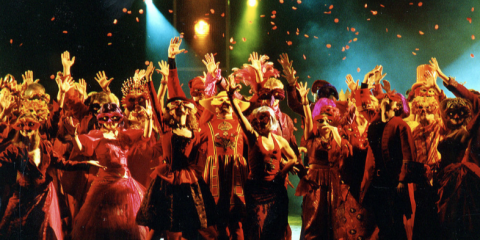 © Michael PoehnRoméo et Juliette Opera by Charles Gounod State Opera Vienna - WienSat 10.May 2025 Tue 13.May 2025
© Michael PoehnRoméo et Juliette Opera by Charles Gounod State Opera Vienna - WienSat 10.May 2025 Tue 13.May 2025 -
 © KasskaraIntroductory matinee ballet: Tannhäuser State Opera Vienna - WienSun 11.May 2025
© KasskaraIntroductory matinee ballet: Tannhäuser State Opera Vienna - WienSun 11.May 2025 -
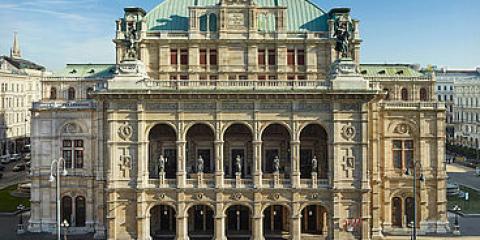 © PoehnBallet: Pathétique Ballet by Martin Schläpfer, George Balanchine, Merce Cunningham State Opera Vienna - WienSun 11.May 2025 Thu 05.Jun 2025+ 4 more
© PoehnBallet: Pathétique Ballet by Martin Schläpfer, George Balanchine, Merce Cunningham State Opera Vienna - WienSun 11.May 2025 Thu 05.Jun 2025+ 4 more -
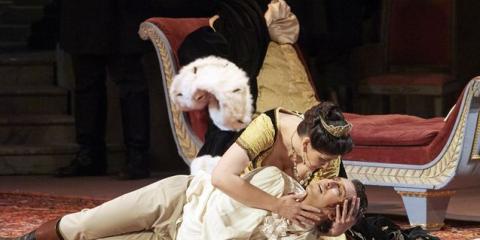 © Wiener Staatsoper GmbH/Michael PTosca Opera by Giacomo Puccini State Opera Vienna - WienMon 12.May 2025 Wed 14.May 2025+ 11 more
© Wiener Staatsoper GmbH/Michael PTosca Opera by Giacomo Puccini State Opera Vienna - WienMon 12.May 2025 Wed 14.May 2025+ 11 more -
 © PoehnNorma Opera by Vincenzo Bellini State Opera Vienna - WienFri 16.May 2025 Tue 20.May 2025+ 4 more
© PoehnNorma Opera by Vincenzo Bellini State Opera Vienna - WienFri 16.May 2025 Tue 20.May 2025+ 4 more -
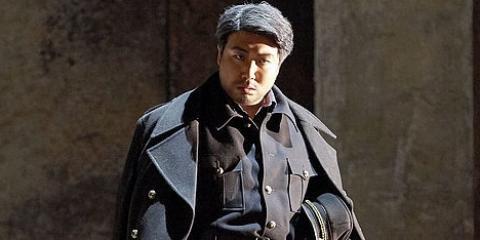 © Wiener Staatsoper / Michael PoehnIl Trovatore Opera by Giuseppe Verdi State Opera Vienna - WienSun 18.May 2025 Wed 21.May 2025+ 5 more
© Wiener Staatsoper / Michael PoehnIl Trovatore Opera by Giuseppe Verdi State Opera Vienna - WienSun 18.May 2025 Wed 21.May 2025+ 5 more -
 © PoehnTannhäuser Opera by Richard Wagner State Opera Vienna - WienThu 22.May 2025 Sun 25.May 2025+ 9 more
© PoehnTannhäuser Opera by Richard Wagner State Opera Vienna - WienThu 22.May 2025 Sun 25.May 2025+ 9 more -
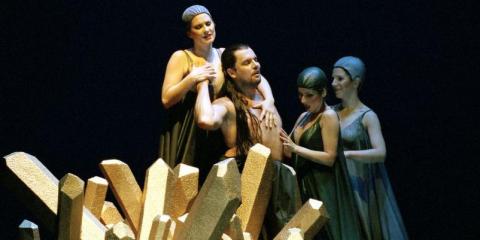 © Wiener Staatsoper GmbH / Michael PDas Rheingold Opera by Richard Wagner State Opera Vienna - WienWed 28.May 2025 Fri 20.Jun 2025+ 4 more
© Wiener Staatsoper GmbH / Michael PDas Rheingold Opera by Richard Wagner State Opera Vienna - WienWed 28.May 2025 Fri 20.Jun 2025+ 4 more -
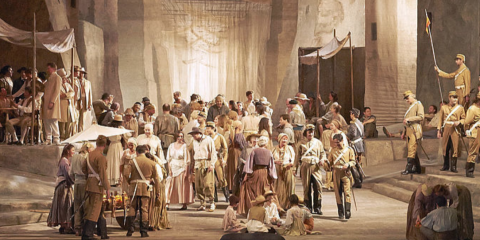 © Wiener Staatsoper GmbH / Michael PCarmen Opera by Georges Bizet State Opera Vienna - WienSat 31.May 2025 Tue 03.Jun 2025+ 12 more
© Wiener Staatsoper GmbH / Michael PCarmen Opera by Georges Bizet State Opera Vienna - WienSat 31.May 2025 Tue 03.Jun 2025+ 12 more -
© Wiener Staatsoper GmbH/ Michael PDie Walküre Opera by Richard Wagner State Opera Vienna - WienMon 02.Jun 2025 Sun 22.Jun 2025+ 4 more
-
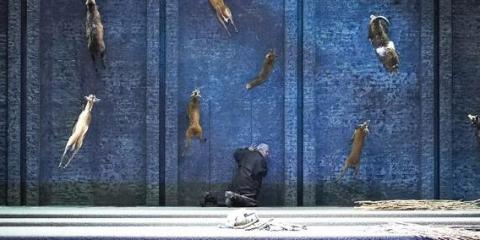 © Wiener Staatsoper GmbH / Michael PSiegfried Opera by Richard Wagner State Opera Vienna - WienSun 08.Jun 2025 Wed 25.Jun 2025+ 4 more
© Wiener Staatsoper GmbH / Michael PSiegfried Opera by Richard Wagner State Opera Vienna - WienSun 08.Jun 2025 Wed 25.Jun 2025+ 4 more -
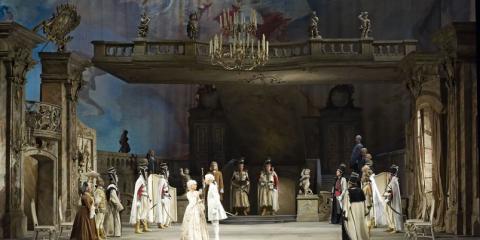 © Wiener Staatsoper GmbH/Michael PDer Rosenkavalier Opera by Richard Strauss State Opera Vienna - WienMon 09.Jun 2025 Thu 12.Jun 2025+ 8 more
© Wiener Staatsoper GmbH/Michael PDer Rosenkavalier Opera by Richard Strauss State Opera Vienna - WienMon 09.Jun 2025 Thu 12.Jun 2025+ 8 more -
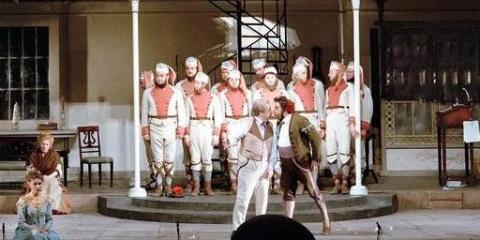 © Alex ZeiningerIl barbiere di Siviglia Opera by Gioachino Rossini State Opera Vienna - WienWed 11.Jun 2025 Fri 13.Jun 2025+ 8 more
© Alex ZeiningerIl barbiere di Siviglia Opera by Gioachino Rossini State Opera Vienna - WienWed 11.Jun 2025 Fri 13.Jun 2025+ 8 more -
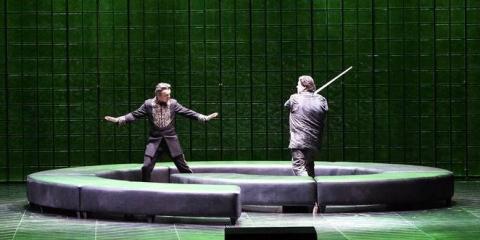 © Wiener Staatsoper GmbH / Michael PGötterdämmerung Opera by Richard Wagner State Opera Vienna - WienSun 15.Jun 2025 Sat 28.Jun 2025+ 4 more
© Wiener Staatsoper GmbH / Michael PGötterdämmerung Opera by Richard Wagner State Opera Vienna - WienSun 15.Jun 2025 Sat 28.Jun 2025+ 4 more -
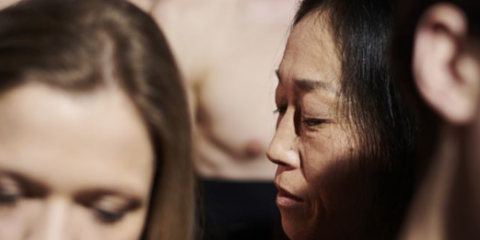 © Tillmann FranzenBallet: Mahler, Live Hans van Manen, Martin Schläpfer State Opera Vienna - WienWed 18.Jun 2025 Mon 23.Jun 2025
© Tillmann FranzenBallet: Mahler, Live Hans van Manen, Martin Schläpfer State Opera Vienna - WienWed 18.Jun 2025 Mon 23.Jun 2025 -
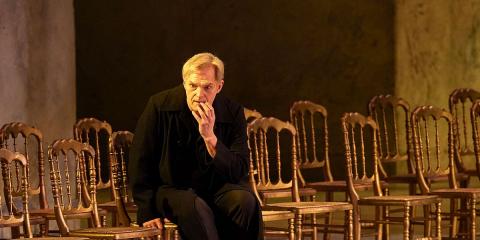 © Wiener Staatsoper GmbHPique Dame Opera by Peter I. Tschaikowski State Opera Vienna - WienSat 21.Jun 2025 Tue 24.Jun 2025+ 4 more
© Wiener Staatsoper GmbHPique Dame Opera by Peter I. Tschaikowski State Opera Vienna - WienSat 21.Jun 2025 Tue 24.Jun 2025+ 4 more -
 © PoehnBallet: The Sleeping Beauty Ballet by Piotr I. Tschaikowski State Opera Vienna - WienThu 26.Jun 2025 Sun 29.Jun 2025
© PoehnBallet: The Sleeping Beauty Ballet by Piotr I. Tschaikowski State Opera Vienna - WienThu 26.Jun 2025 Sun 29.Jun 2025 -
 © PoehnAndreas Vitásek - Ein Favoritner in der Oper State Opera Vienna - WienTue 01.Jul 2025
© PoehnAndreas Vitásek - Ein Favoritner in der Oper State Opera Vienna - WienTue 01.Jul 2025 -
 © PoehnOmar Sarsam - STIMMT State Opera Vienna - WienWed 02.Jul 2025
© PoehnOmar Sarsam - STIMMT State Opera Vienna - WienWed 02.Jul 2025 -
 © PoehnGery Seidl - Eine Runde Seidl State Opera Vienna - WienThu 03.Jul 2025
© PoehnGery Seidl - Eine Runde Seidl State Opera Vienna - WienThu 03.Jul 2025
The “Wiener Staatsoper“ is without a doubt one of the most leading opera stages in the world. The building was finished in 1869 and opened with the premiere of “Don Giovanni” by Wolfgang Amadeus Mozart, at which even Empress Elisabeth and Emperor Franz Joseph were present. Many premieres were celebrated in the “Wiener Staatsoper”, like “Werther” by Jules Massenet, “Notre Dame” by Franz Schmidt or “Guiditta” by Franz Lehár. The playing season starts in September and lasts until the end of June. In this period almost daily performances are played and in total there are around 350 performances with over 60 different works. The program covers opera and ballet performances which are supplemented by solo artist concerts (Edita Gruberova) and lieder recitals. The “Wiener Staatsopernorchester” is composed of members of the “Wiener Philharmoniker”. Additionally the choir of the “Wiener Staatsoper”, which provides 100 vocalists, and the “Wiener Staatsballett” are available. The most important works of opera literature like Tosca (Puccini), Troubadour (Verdi), Carmen (Bizet), The Barber of Seville (Rossini) and Parsifal (Wagner) are on the program and are complemented by works from baroque up to the modern creations. In addition to the program of the “Wiener Staatsoper” are Turandot (Puccini), Arabella (Strauss), Medea (Reimann), Das Rheingold (Wagner), Eugen Onegin (Tschaikowski) or Fidelio (Beethoven). Another highlight, which takes place every year in the “Wiener Staatsoper”, is the Opera Ball. The international recognized highlight of the ball season usually takes place on the last Thursday before Ash Wednesday and is even broadcasted on TV. Even though the “Staatsoper” is often sold out, we can usually offer a selection of tickets for all performances until the day of the performance. Even before the official advance booking, we can offer you tickets for all performances in the “Wiener Staatsoper”. Save yourself tickets for an unforgettable evening in the “Wiener Staatsoper” and book tickets at viennaticket.at!
